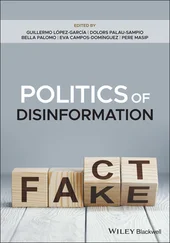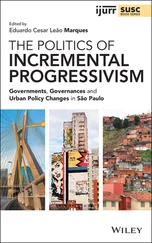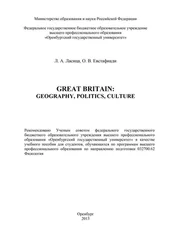1 Cover
2 Series Title
3 Title Page Decolonizing Politics An Introduction Robbie Shilliam polity
4 Copyright Page
5 Dedication
6 Acknowledgments
7 1 Introduction Aristotle’s World Organization of the Book
8 2 Political Theory Kant: Humanitas and the Anthropos Wynter: Man1 and Man2 Conclusion
9 3 Political Behavior The Science of Race Heredity Eugenics and Behaviorism in the United States Fanon’s anti-colonial psychiatry Conclusion
10 4 Comparative Politics Colonialism and the Paradox of Comparison Political Development and the Committee on Comparative Politics Under-Development and Dar es Salaam University Conclusion
11 5 International Relations Good Imperial Governance International Society A Nuclear-Free and Independent Pacific Conclusion
12 6 Conclusion
13 References
14 Index
15 End User License Agreement
1 Cover
2 Table of Contents
3 Begin Reading
1 ii
2 iii
3 iv
4 v
5 vi
6 viii
7 1
8 2
9 3
10 4
11 5
12 6
13 7
14 8
15 9
16 10
17 11
18 12
19 13
20 14
21 15
22 16
23 17
24 18
25 19
26 20
27 21
28 22
29 23
30 24
31 25
32 26
33 27
34 28
35 29
36 30
37 31
38 32
39 33
40 34
41 35
42 36
43 37
44 38
45 39
46 40
47 41
48 42
49 43
50 44
51 45
52 46
53 47
54 48
55 49
56 50
57 51
58 52
59 53
60 54
61 55
62 56
63 57
64 58
65 59
66 60
67 61
68 62
69 63
70 64
71 65
72 66
73 67
74 68
75 69
76 70
77 71
78 72
79 73
80 74
81 75
82 76
83 77
84 78
85 79
86 80
87 81
88 82
89 83
90 84
91 85
92 86
93 87
94 88
95 89
96 90
97 91
98 92
99 93
100 94
101 95
102 96
103 97
104 98
105 99
106 100
107 101
108 102
109 103
110 104
111 105
112 106
113 107
114 108
115 109
116 110
117 111
118 112
119 113
120 114
121 115
122 116
123 117
124 118
125 119
126 120
127 121
128 122
129 123
130 124
131 125
132 126
133 127
134 128
135 129
136 130
137 131
138 132
139 133
140 134
141 135
142 136
143 137
144 138
145 139
146 140
147 141
148 142
149 143
150 144
151 145
152 146
153 147
154 148
155 149
156 150
157 151
158 152
159 153
160 154
161 155
162 156
163 157
164 158
165 159
166 160
167 161
168 162
169 163
170 164
171 165
172 166
173 167
174 168
175 169
176 170
177 171
178 172
179 173
180 174
181 175
182 176
183 177
184 178
185 179
186 180
187 181
188 182
Decolonizing Politics
An Introduction
Robbie Shilliam
polity
Copyright © Robbie Shilliam 2021
The right of Robbie Shilliam to be identified as Author of this Work has been asserted in accordance with the UK Copyright, Designs and Patents Act 1988.
First published in 2021 by Polity Press
Polity Press
65 Bridge Street
Cambridge CB2 1UR, UK
Polity Press
101 Station Landing
Suite 300
Medford, MA 02155, USA
All rights reserved. Except for the quotation of short passages for the purpose of criticism and review, no part of this publication may be reproduced, stored in a retrieval system or transmitted, in any form or by any means, electronic, mechanical, photocopying, recording or otherwise, without the prior permission of the publisher.
ISBN-13: 978-1-5095-3938-3 (hardback)
ISBN-13: 978-1-5095-3939-0 (paperback)
A catalogue record for this book is available from the British Library.
Library of Congress Cataloging-in-Publication Data
Names: Shilliam, Robbie, 1969- author.
Title: Decolonizing politics : an introduction / Robbie Shilliam.
Description: Cambridge, UK ; Medford, MA : Polity Press, 2021. | Series: Decolonizing the curriculum | Includes bibliographical references and index. | Summary: “An ideal student primer exploring why, and how, the study of politics should be decolonized”-- Provided by publisher.
Identifiers: LCCN 2020037765 (print) | LCCN 2020037766 (ebook) | ISBN 9781509539383 (hardback) | ISBN 9781509539390 (paperback) | ISBN 9781509539406 (epub)
Subjects: LCSH: Political science--Philosophy. | Political participation. | Comparative government. | International relations.
Classification: LCC JA71 .S444 2021 (print) | LCC JA71 (ebook) | DDC 320.01--dc23
LC record available at https://lccn.loc.gov/2020037765
LC ebook record available at https://lccn.loc.gov/2020037766
by Fakenham Prepress Solutions, Fakenham, Norfolk NR21 8NL
The publisher has used its best endeavors to ensure that the URLs for external websites referred to in this book are correct and active at the time of going to press. However, the publisher has no responsibility for the websites and can make no guarantee that a site will remain live or that the content is or will remain appropriate.
Every effort has been made to trace all copyright holders, but if any have been overlooked the publisher will be pleased to include any necessary credits in any subsequent reprint or edition.
For further information on Polity, visit our website: politybooks.com
For Kōkiri and Reremoana. And to all the children who must find ways over, under, around, and through wicked Babylon.
My thanks to Jacob Kripp, Stephanie Najjar, Nandini Dey, and Sheharyar Imran for their help. Thanks also to Inès Boxman, Sophie Wright, and Louise Knight at Polity for all their support. And thanks to two anonymous reviewers for their useful comments.
Let’s start with a figure who is conventionally known as the “father” of political science – Aristotle. You might think this strange for a book that seeks to decolonize the study of politics: isn’t Aristotle a very Eurocentric departure point? Not if you asked Aristotle. He categorized Europeans as barbarians. Paul Cartledge (1993, 5), an eminent historian of the classical world, describes the ancient Greeks as “desperately foreign” to our Western sensibilities. Or how about Derek Walcott, famous Saint Lucian poet and Nobel Prize winner, who compares the Aegean and Caribbean seas and finds much in common:
If we looked at them now, we would say that the Greeks had Puerto Rican tastes. Right? Because the stones were painted brightly. They were not these bleached stones. Time went by, and they sort of whitened and weathered, the classics began to be thought of as something bleached-out and rain-spotted, distant. (Brown and Johnson 1996, 183).
Perhaps Aristotle is not so much a strange departure point as an uncanny one. Investigating the place of aboriginal ideas of the sacred in mainstream Australian society, Ken Gelder and Jane Jacobs (1995, 171) define the uncanny as “the combination of the familiar and the unfamiliar – the way the one seems always to inhabit the other.” Aristotle is familiar: we are used to conceiving of him as the progenitor of a European science of politics. Yet he is also unfamiliar: in fact, Aristotle was not European, so what does that make of the purportedly European tradition of studying politics?
Читать дальше












